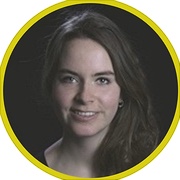Digital literary studies and literary didactics
- Type of event: Seminar
- Institution: Faculty of Humanities
- Funding period: 01.04.2023 to 31.03.2024
- Short title: DH and didactics
Extract from the funding application: "What possibilities for action arise for literature teaching through the use of digital methods of text analysis and what can teaching concepts look like in which literary texts are digitally analysed?"
Orientation of the project
The project is based on the observation that:
- In the discipline of "Digital Humanities/Computational Literary Studies/Digital Literary Studies", there are a large number of established methods for analysing texts digitally.
- There are uncertainties in the use of statistical methods for text analysis in German lessons.
- Educational policy discourses emphasise that media education and computer science are jointly responsible and that digital education must be viewed from a socio-cultural, technological and pedagogical perspective.

This leads to the question of how the transfer of digital text analysis methods into school lessons could be organised. The responsible participation of future students in a digitalised society is only possible if teachers acquire the appropriate skills. The seminar therefore links two areas: school (literature teaching) and the literary sub-area of digital humanities.

teresa berndtsson letterword text taxonomy
Review and results
The seminar consisted of two parts:
- Discussion of established methods and resources in computational literary studies for the digital analysis of literary texts. The focus is on the practical application and critical reflection of the methods and the data generated. Participation requires no prior technical knowledge.
- Feedback on didactic concepts as well as school and political framework conditions.

In the course of the seminar, students will have become familiar with digital humanities as a discipline, corpus formation and existing resources that form the basis for digital text analyses. They tried out various digital methods of text analysis, such as digital manual annotation with CATMA, corpus analysis with CATMA, distant reading with Voyant, stylometry with Stylo, ChatGPT, fiete.ai and sentiment analyses with SentText.
They also analysed educational policy frameworks and proposals for "education in the digital world". They familiarised themselves with platforms for open educational resources, looked at models for the use of digital media in German lessons and at factors for effective teaching with a digital component. In the ISE workshop, they saw how pedagogy and technology can interact.
A central question in all sessions was what possibilities for action literature teaching offers through digital text analysis and what meaningful teaching concepts and strategies might look like. The critical view of computer-generated data and its comparison with everyday school life was also important. The discussion and transfer to the school environment will be documented in blog posts and assignments.
Tips from lecturers for lecturers

Effective time management is important when planning seminar sessions. Group work phases often take much longer than expected. Another time factor is the correction of student content. The students rated the conceptualisation of the individual sessions and the two-part seminar concept as very positive.
The independent development of online content such as a blog significantly strengthens the digital skills of teachers, for example in dealing with CMS systems, developing templates, developing a design, writing articles, uploading articles and dealing with accessibility.
Persons involved
Faculty of Humanities
Applicant: Marie Flüh
Funding line: Subject-specific data literacy
Funding period: 01.04.2023 - 31.03.2024
Course in winter semester 23/24: Seminar Digital Literary Studies and Literary Didactics (link to the Stine course catalogue)

